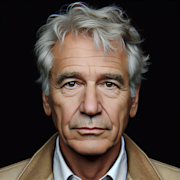Understanding the Cinematic Genius of Stanley Kubrick

Stanley Kubrick is widely regarded as one of the greatest and most influential filmmakers in the history of cinema. His attention to detail, technical mastery, and unique storytelling approach have made him a legendary figure in the industry. In this blog post, we will explore the cinematic genius of Stanley Kubrick and examine what sets him apart from other directors.
The Early Years: A Foundation for Brilliance
Stanley Kubrick was born on July 26, 1928, in New York City. His early exposure to photography sparked a passion for visual storytelling, which would later become the cornerstone of his filmmaking career. Kubrick’s early years in photography allowed him to develop an acute sense of composition and lighting, skills that he would later employ to great effect in his films.
A Unique Visual Style
Kubrick’s films are renowned for their distinctive visual style. His meticulous attention to detail is evident in every frame, as he carefully crafts each shot to convey his intended message. Whether it’s the symmetry and precision of “The Shining” or the futuristic aesthetics of “2001: A Space Odyssey,” Kubrick’s use of imagery is nothing short of exceptional.
Notably, Kubrick was also an early adopter of innovative film techniques. In “A Clockwork Orange,” he utilized the technique of “ultra-widescreen,” which created a heightened sense of impact and immersion for the audience. These bold choices not only pushed the boundaries of filmmaking but also added another layer of visual brilliance to Kubrick’s work.
Delving into the Complex Narratives
Stanley Kubrick was a master of storytelling, often delving into profound and complex narratives that explored the depths of human existence. His films often dealt with themes such as the duality of human nature, the dark side of society, and the boundaries of morality. By addressing these intricate subjects, Kubrick challenged his audience to question their own beliefs and values.
Psychological Depth and Character Development
One of Kubrick’s greatest strengths as a director was his ability to create psychologically deep and compelling characters. He often used extended takes and close-ups to capture the nuances of their performances, allowing the audience to intimately connect with the characters on an emotional level.
In “Full Metal Jacket,” for instance, Kubrick explored the transformative effects of war on the human psyche. By meticulously portraying the emotional journey of a group of soldiers, he was able to depict the complexities of their mental states and the moral dilemmas they faced. Kubrick’s commitment to authentic character development is what made his films so engrossing and thought-provoking.
A Legacy of Masterpieces
Throughout his career, Stanley Kubrick produced a series of masterpieces that have stood the test of time. Each film showcases his unrivaled talent and leaves a lasting impact on its audience. Let’s take a closer look at some of his most iconic works.
1. 2001: A Space Odyssey (1968)
“2001: A Space Odyssey” is often regarded as one of the greatest films ever made. Its groundbreaking visual effects, philosophical undertones, and sheer audacity continue to captivate audiences today. Kubrick’s meticulous attention to detail and his ability to create a sense of grandeur make this film a true masterpiece of cinematic achievement.
2. The Shining (1980)
Based on the novel by Stephen King, “The Shining” is a prime example of Kubrick’s ability to blend psychological horror with visual storytelling. The use of long tracking shots, symmetrical composition, and eerie music create an atmosphere of dread and suspense throughout the film. “The Shining” remains a timeless classic due to Kubrick’s commitment to terrorize and mesmerize his audience in equal measure.
3. A Clockwork Orange (1971)
“A Clockwork Orange” is a controversial film that explores themes of violence, free will, and the nature of evil. Kubrick’s bold visual style, coupled with powerful performances, elevates the film to an unforgettable cinematic experience. With its thought-provoking moral quandaries and unforgettable imagery, “A Clockwork Orange” solidified Kubrick’s reputation as an uncompromising director.
The Enduring Influence
Stanley Kubrick’s impact on the film industry continues to be felt today. His groundbreaking techniques, unflinching exploration of complex themes, and commitment to visual storytelling have inspired countless filmmakers after him.
Shaping Future Directors
Directors like Christopher Nolan, Quentin Tarantino, and Paul Thomas Anderson have all cited Stanley Kubrick as a significant influence on their work. Kubrick’s dedication to pushing the boundaries of filmmaking and storytelling has inspired a new generation of directors to challenge conventions and innovate in their own right.
A Cinematic Masterclass
Kubrick’s films remain canonical examples of the power and artistry of cinema. They serve as a masterclass in storytelling, visual composition, and creating immersive experiences for the audience. Aspiring filmmakers and film enthusiasts continue to study his work for insights and inspiration, making Stanley Kubrick a true cinematic genius whose legacy will endure for generations to come.
In conclusion, Stanley Kubrick’s cinematic genius lies not only in his technical brilliance and visual style, but also in his profound exploration of complex themes. Through his films, he challenged our perceptions and expanded the possibilities of storytelling. His legacy continues to shape the film industry, as his works remain icons of the medium. Stanley Kubrick will forever be remembered as one of the greatest directors in history, leaving behind a body of work that will continue to inspire and awe audiences for years to come.

Desmond van der Walt
Journalist
More From Classics Authority Movies

Movie
Who's Afraid of Virginia Woolf? (1966)

Movie
Cinematic Elegance: Grace Kelly's Enduring Influence on Classic Films

Movie
The Life and Death of Colonel Blimp (1943)

Movie
Classic Movies that Expose the Dark Underbelly of Society

Movie
Classic Movie Mysteries: Solving the Enigmas Beyond the Plot

Movie
The Hurt Locker (2008)





